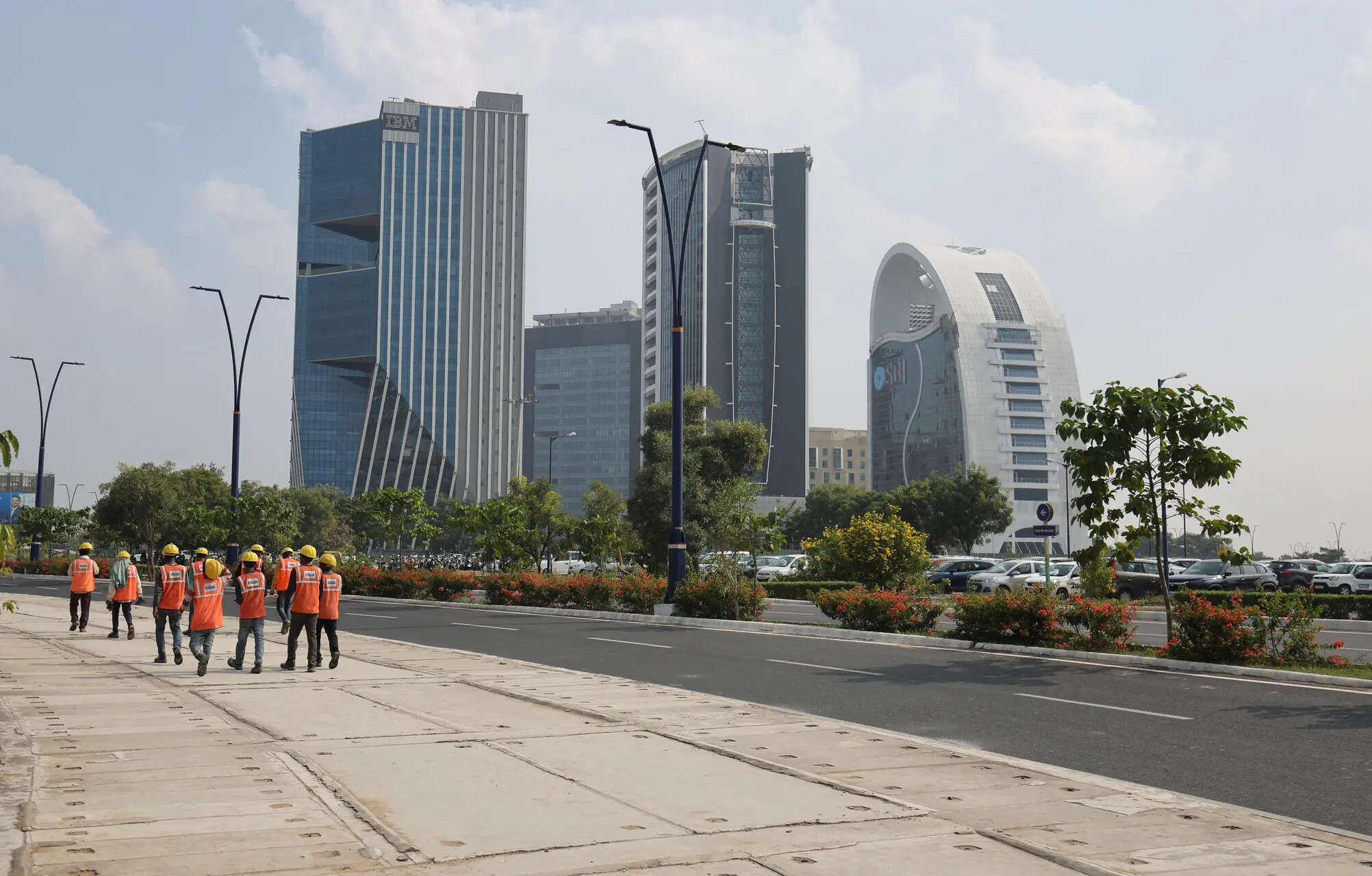AI Summary
GIFT City, India's first International Financial Services Centre (IFSC), is strategically designed to elevate India's financial and tech sectors. It attracts businesses with significant tax benefits, including a 10-year income tax exemption and GST exemptions. Its location near Ahmedabad provides excellent connectivity and a time zone advantage for global operations. GIFT City welcomes diverse financial services, including banking, insurance, and FinTech. It operates under the Special Economic Zone (SEZ) Act, offering a liberalized regulatory environment. Businesses enjoy reduced MAT/AMT rates and potential state subsidies. Investors benefit from tax-free interest income and capital gains exemptions. With streamlined approvals, world-class infrastructure, and a growing talent pool, GIFT City streamlines business processes, attracting skilled professionals and major institutions. Continuous government support and regulatory clarity are crucial for GIFT City to solidify it's position as a global financial hub.
Last Updated on: 3rd October 2025, 04:38 pm
Contents
GIFT City: India’s Gateway to a Global Financial Future
The global financial landscape thrives on vibrant hubs that facilitate international trade and investment. India’s strategic response to this need is the Gujarat International Financial Tec-City, or GIFT City. This ambitious project is designed to propel India’s financial and tech sectors to the forefront, offering a compelling array of incentives and infrastructural advantages. Today, we’ll delve into the world of GIFT City, exploring its appeal, particularly for those seeking significant tax benefits.
Why Consider GIFT City for Your Business?
For businesses and investors seeking a tax-efficient and globally connected environment, GIFT City presents a compelling opportunity. Here’s a breakdown of its key advantages:
- Tax Paradise: GIFT City’s status as an International Financial Services Centre (IFSC) translates to significant tax benefits for entities operating within it. These benefits translate to substantial cost savings and increased profitability. Units in the IFSC enjoy a 10-year income tax exemption, no Goods and Service Tax (GST) on services received, and exemption from capital gains tax on transfers of specified securities listed on IFSC exchanges. Dividend received by non-residents from IFSC units is taxable at a concessional rate of 10% plus applicable surcharge and cess.
- Strategic Location and Global Ambitions: Situated near Gandhinagar, Gujarat’s capital, GIFT City enjoys excellent connectivity. It’s adjacent to Ahmedabad, a major industrial and historical hub, and boasts proximity to the Ahmedabad International Airport and the Delhi-Mumbai Industrial Corridor. This strategic positioning, coupled with a time zone advantage, makes it ideal for global operations.
- A World of Opportunities: GIFT City caters to a diverse range of financial services and related sectors. Banks, capital market players, fund managers, insurance companies, and even global in-house centers (GICs) can all find a home here. Additionally, FinTech enterprises, foreign universities, and supplementary services are welcomed, fostering a dynamic and multifaceted ecosystem.
Understanding International Financial Services Centers (IFSCs)
Established under the Special Economic Zone (SEZ) Act, GIFT City serves as India’s first designated IFSC. These specialized zones offer a liberalised regulatory environment and tax incentives to attract foreign investment and participation in financial services. This fosters competition within the financial sector, ultimately benefiting businesses and investors.
Types of Businesses Eligible for GIFT City
The IFSC at GIFT City welcomes a wide range of businesses, including:
- Financial Services: Banks, insurance companies, capital market players, fund management firms.
- Global In-House Centers (GICs): Companies can establish GICs to handle functions like IT, finance, and accounting within GIFT City’s tax-efficient framework.
- Support Services: Accounting, auditing, legal, taxation, and other professional services providers can leverage GIFT City’s infrastructure and benefits.
- Emerging Sectors: FinTech companies, the International Bullion Exchange, ship and aircraft leasing firms are finding a supportive environment within GIFT City.
GIFT City Tax Benefits
GIFT City offers a treasure trove of tax benefits for businesses and investors seeking a cost-effective and globally competitive platform. Let’s delve into the GIFT City Taxation key advantages:
Income Tax Benefits
A) For units in IFSC:
- 100% Tax Holiday: Companies operating in GIFT City enjoy a complete tax exemption on business profits for any 10 consecutive years within a 15-year period. This allows them to maximize profits and reinvest in growth.
- Reduced MAT/AMT: The Minimum Alternate Tax (MAT) and Alternate Minimum Tax (AMT) are significantly lower at 9% of book profits compared to 15% in the mainland. This translates to considerable tax savings.
- New Tax Regime Option: Companies opting for the new tax regime are exempt from MAT altogether, offering even greater flexibility.
B) For Investors:
- Tax-Free Interest Income: Interest earned on loans provided by non-residents to IFSC units is not subject to any taxes in India. This incentivizes investors to park their funds in GIFT City.
- Reduced Tax on Bonds: Interest income from specific long-term or rupee-denominated bonds listed on IFSC exchanges is taxed at a concessional rate of:
– 4% for bonds issued before July 1, 2023
– 9% for bonds issued on or after July 1, 2023
Investor Incentives
A) For units in IFSC:
- Concessional rate for Dividend: Dividend received by non-residents from an IFSC unit taxable at a concessional rate of 10% plus applicable surcharge and cess.
B) For Investors:
- Capital Gains Exemption: Gains from the transfer of specific securities by non-residents on IFSC exchanges are not considered taxable income in India. This eliminates a potential tax burden for foreign investors.
GST Implications
A) For units in IFSC:
- GST-Free Services: Services rendered between IFSC units or provided to IFSC units, SEZ units, and offshore clients are exempt from GST. This simplifies tax compliance and reduces operational costs.
B) For Investors:
- GST-Free Transactions: Transactions on IFSC exchanges, such as trading in securities, are not subject to GST, offering tax efficiency for investors.
Corporate Tax Rate
| Entity | Corporate Tax Rate |
| For 10 consecutive years (within a 15-year period) | 0% |
| After 10 Years | 22% + 10% (surcharge) + 4% (cess) |
Corporate tax rate for companies incorporated in GIFT IFSC who have opted for the concessional regime
We take care of your taxation needs at GIFT City Let’s Talk
Other GIFT City Taxation Benefits
- State Subsidies: Units in IFSC can avail of state subsidies on various expenses, including lease rentals, provident fund contributions, and electricity charges, further reducing their operational costs.
- Transaction Tax and Stamp Duty Exemptions: Investors benefit from exemptions on specific transaction taxes and stamp duty on trades executed on IFSC exchanges.
- Reduced Withholding Tax on Interest: For overseas borrowings by IFSC units, the withholding tax on interest payments is reduced to 9% for long-term or rupee-denominated bonds listed on an IFSC stock exchange, compared to the standard withholding tax rate.
Additional Considerations
- Alternative Investment Funds (AIF) Tax Benefits: AIFs Category I and II provide a tax pass-through status, allowing investors to be taxed as if they directly made the investments, while the AIF itself enjoys a ten-year tax exemption on business income. Non-resident investors benefit from not having to file tax returns or pay income tax on certain earnings. Category III AIFs offer tax exemptions on income from specific securities for non-resident investors. Additionally, fund managers in GIFT City enjoy a 100% corporate tax exemption for ten years and are exempt from Goods and Services Tax.
- Tax Incentives for Non-Resident Investors: The government provides specific tax benefits for non-resident investors who invest in AIFs located in the GIFT City IFSC.


Unlocking Operational Efficiency in GIFT City
GIFT City goes beyond its initial focus on tax incentives. It has evolved into a comprehensive financial and business hub offering a range of operational advantages. These advantages are designed to streamline business processes and empower companies to function at their peak. Let’s delve into these key benefits:
- Streamlined Approvals and Single-Window Regulator: GIFT City boasts a simplified regulatory framework. The International Financial Services Centre Authority (IFSCA) acts as a single point of contact, eliminating bureaucratic hurdles and expediting approvals for setting up and operating a business. This reduces administrative burdens and allows companies to focus on core activities.
- World-Class Infrastructure and Uninterrupted Power Supply: GIFT City provides state-of-the-art infrastructure with cutting-edge technology and a robust power supply. This ensures seamless business continuity and minimizes operational disruptions.
- Access to a Growing Talent Pool: GIFT City is attracting a growing pool of skilled professionals in finance, law, and accounting, exceeding 26,000. This readily available talent pool ensures businesses have the resources they need to thrive. The city’s proximity to IIT Gandhinagar and the recent establishment of campuses by Deakin and Wollongong University, both leading Australian institutions, further fuel the talent pipeline with top graduates.
- Liberalized Currency Repatriation: Unlike the mainland, companies in GIFT City enjoy liberalized currency repatriation norms. This allows for the free movement of funds within permissible regulations, enhancing financial flexibility for businesses.
- Strategic Time Zone Advantage: GIFT City’s strategic location places it between key financial centers like Dubai and Singapore. This advantageous time zone facilitates seamless communication and collaboration across different markets, allowing businesses to capitalize on global opportunities.
The Future of GIFT City
GIFT City in Gandhinagar, Gujarat, India, is rapidly emerging as a key player in the global financial landscape. Its attractive tax framework is a major driver of this growth, attracting businesses and investors seeking a competitive and efficient operating environment. The Indian government’s initiatives are solidifying GIFT City’s position as a global financial hub, offering a strategic location and strong regulatory framework.
- Reduced Tax on Dividends for IFSC Units: Dividend received by non-residents from an IFSC unit taxable at a concessional rate of 10% plus applicable surcharge and cess
- Concessional Withholding Tax: Non-resident investors earning interest income from long-term or rupee-denominated bonds listed on GIFT City exchanges benefit from a reduced withholding tax rate. This makes these bonds more attractive to international investors.
- Tax-Neutral Fund Transfers: Recent amendments allow for the smooth transfer of offshore funds with no tax implications. This opens doors for greater participation from offshore funds.
Industry Optimism and the Road Ahead
These tax breaks, coupled with streamlined regulations and a world-class infrastructure, are fueling industry optimism about GIFT City’s future. 28 banks have already established a presence in GIFT City, recognizing its potential as a gateway to the Indian market.
Looking ahead, experts believe that continued government support and a clear long-term vision are crucial for GIFT City’s success. This includes:
- Regulatory Clarity: Stakeholders are seeking further clarity on the scope and longevity of tax benefits offered by GIFT City.
- Harmonization with Onshore Regulations: Streamlining regulations between GIFT City and mainland India will facilitate smoother business operations.
- Enhanced Infrastructure and Living Standards: Developing a robust social and living infrastructure within GIFT City will attract and retain a skilled workforce and expatriate talent.
Conclusion: Unveiling the Gateway to India’s Financial Future
GIFT City’s journey is a testament to India’s ambitious vision for a world-class financial hub. By strategically leveraging tax benefits and a progressive regulatory environment, GIFT City is poised to become a magnet for businesses and investors seeking a globally competitive platform.
For businesses, GIFT City offers a compelling value proposition. The tax holidays, reduced tax on dividends translate to significant cost savings and improved profitability. Additionally, the world-class infrastructure and streamlined regulations ensure a smooth and efficient operational environment.
Investors, both domestic and international, can benefit from GIFT City’s tax-efficient ecosystem. The concessional withholding tax on bonds, tax-neutral fund transfers,. Moreover, GIFT City’s proximity to the vast Indian market allows investors to tap into its immense potential while enjoying the advantages of an international financial center.
GIFT City’s success hinges on its ability to adapt and evolve. Continued government support in terms of regulatory clarity and harmonization with mainland India will be crucial. Developing a robust social infrastructure and world-class living standards will further enhance its appeal to a global workforce.
GIFT City’s story is far from over. It’s an ongoing saga of innovation, collaboration, and unwavering ambition. As it continues to develop, GIFT City beckons businesses and investors to be part of this transformative journey. By embracing GIFT City’s potential, businesses and investors can unlock a world of opportunity in the heart of resurgent India.
We Are Problem Solvers. And Take Accountability.
Related Posts


AIF in GIFT City IFSC- Structures, Regulations, Benefits
AI Summary The growth of Alternative Investment Funds (AIFs) in…
Learn More





GIFT City Business Opportunities – A Deep Exploration
AI Summary GIFT City (Gujarat International Finance Tec-City) is India’s…
Learn More





GIFT City Ecosystem for Startups – A Complete Guide in 2026
AI Summary GIFT City, India's first International Financial Services Centre…
Learn More














